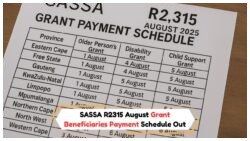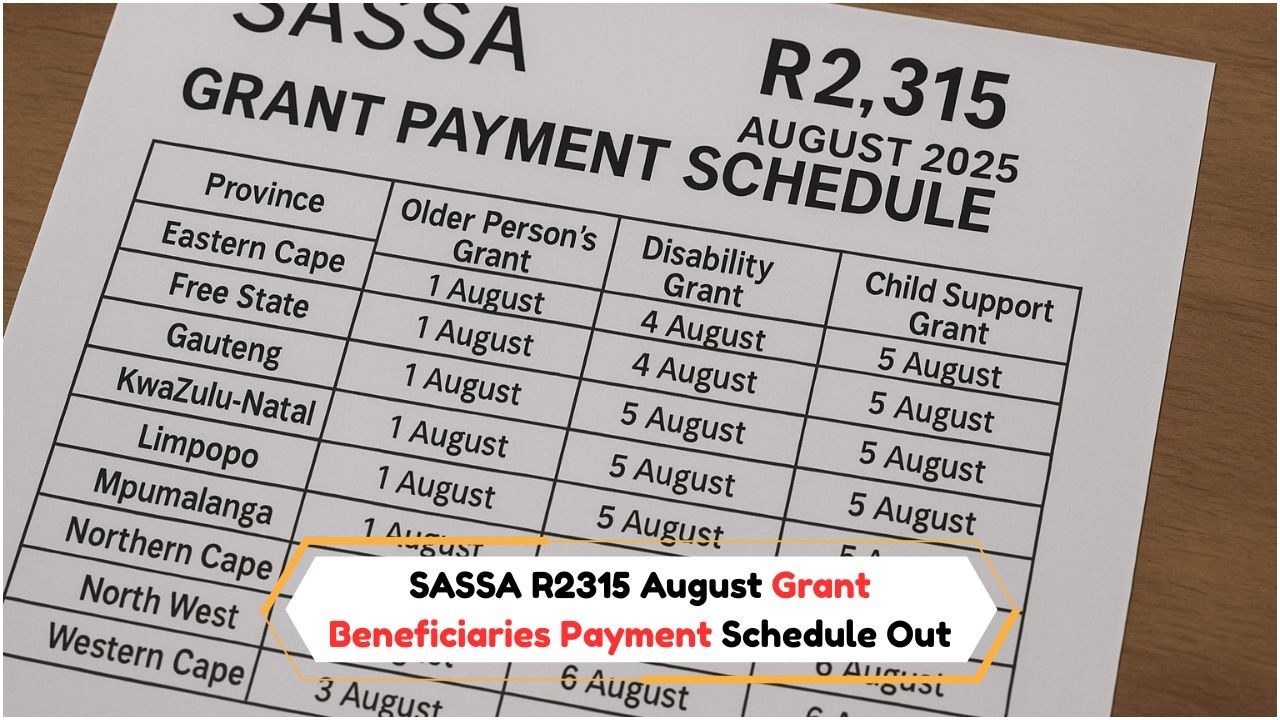August 2025: South African Teachers Demand R30,000 Salaries in Nationwide Protest Uprising: In a bold move that has captured the attention of the nation, South African teachers have united in a massive protest, advocating for a significant increase in their salaries. This unprecedented demand for a minimum of R30,000 a month is the culmination of years of frustration over stagnant wages amid rising living costs. Teachers from all corners of the country are participating in this movement, highlighting the critical role they play in shaping the future of South Africa’s youth. The protests have been characterized by peaceful marches and rallies, aiming to draw attention to the educators’ plight and the urgent need for reform in the education sector.
Nationwide Teacher Protests: A Call for Fair Compensation
As the protest unfolds, it is clear that teachers across South Africa are unified in their call for fair compensation. The demand for a R30,000 salary has been a rallying cry at the heart of this movement, with educators arguing that their current earnings fail to meet the demands of modern life. The cost of living in urban areas such as Johannesburg and Cape Town has skyrocketed, placing significant financial pressure on teachers who are struggling to make ends meet. Many have voiced concerns that their low salaries do not reflect the critical work they do, often going above and beyond to ensure quality education for their students. This nationwide protest is not just about salaries; it is a broader call for respect and recognition of the teaching profession. Educators are urging the government to acknowledge their contributions by providing a living wage that allows them to focus on their primary role: educating the nation’s children.
Impact of Teacher Salaries on Education Quality
The issue of teacher salaries is intrinsically linked to the quality of education in South Africa. Educators argue that inadequate compensation affects their ability to perform effectively, leading to higher turnover rates and a lack of experienced teachers in the classroom. This has a direct impact on students, who suffer from inconsistent teaching and a lack of resources. By demanding R30,000 salaries, teachers hope to attract and retain skilled professionals in the education sector, ultimately improving learning outcomes for students. Furthermore, better pay could lead to increased job satisfaction and motivation among teachers, contributing to a more stable and effective educational environment. Policymakers are being urged to consider the long-term benefits of investing in education, emphasizing that a well-compensated teaching workforce is fundamental to the country’s development and prosperity.
Government’s Response to Teachers’ Salary Demands
The government’s response to the teachers’ demands has been closely watched by both educators and the public. While there is acknowledgment of the challenges faced by teachers, budgetary constraints are often cited as a barrier to meeting the R30,000 salary demand. However, education advocates argue that prioritizing teacher salaries in the national budget is essential for sustainable development. Discussions between teacher unions and government officials are ongoing, with both parties seeking a resolution that addresses the educators’ concerns while balancing fiscal responsibilities. The outcome of these negotiations could set a precedent for how South Africa values and compensates its educators in the future.
Future Prospects for South African Teachers
As the protest continues, South African teachers remain hopeful for a positive outcome that will lead to improved working conditions and fair compensation. The movement has sparked a broader conversation about the role of educators in society and the importance of investing in education. Looking ahead, there is optimism that this uprising will lead to tangible changes in how teachers are valued and supported. The demand for R30,000 salaries is seen as a stepping stone towards achieving greater equity and respect for the teaching profession. Educators across the country are committed to continuing their advocacy efforts, determined to ensure that their voices are heard and that meaningful change is enacted. The future of South African education depends on the outcome of this movement, and teachers are resolute in their pursuit of a better tomorrow for themselves and their students.







